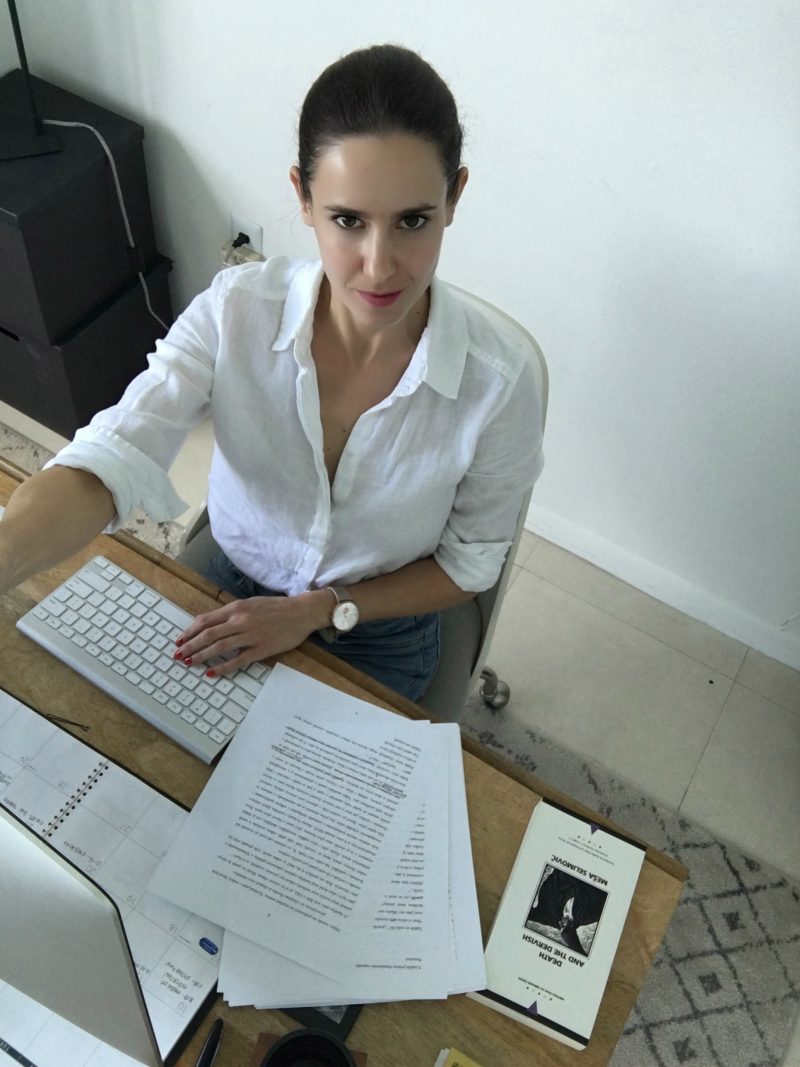“Are you paralyzed with fear? That’s a good sign. Fear is good. Like self-doubt, fear is an indicator and a barometer. Fear tells us what we have to do. Remember this one rule of thumb: the more scared we are of work or a calling, the more sure we can be that we have to do it.” ― Steven Pressfield, The War of Art: Break Through the Blocks & Win Your Inner Creative Battles
Last week I sent my finished novel to a prominent Czech publishing house. After I finished it, it took me quite a while to actually sit down and send it. Fear kicked in the very moment that I was gathering contact information to submit to the publishing houses. It had nothing to do with the actual story. I loved it and believed in it. It was completely irrational, just like any other fear. The moment I sent the email, I felt relief and satisfaction. It didn’t come from the fact that it was out of my hands, but from the fact that I knew I gave it my all. Thinking about people reading the story filled me with happiness.
The path to the completion of the book wasn’t always smooth. There was a lot of deleting and rewriting, and a lot of insecurities and doubts. But at the end of the day, you as a writer either feel what works or you don’t.
There is no magic formula to make you learn that part of the craft. There are however books that can help you tremendously with other skills in the writing process. The biggest obstacle, when it comes to new writers, seems to be the fear to start. A blank page can feel intimidating, and thoughts often get overwhelming. How to start, how long it should be, is the publisher going to be drawn to it? There are so many things that bring doubts, and most of them are premature, and the rest of them are unlikely to happen.
If you feel, you carry a story inside of you that wants out, stop worrying about people liking it, stop worrying about publisher or how to start. Just sit down, in front of the computer and type the first couple words. It is truly as easy as that. And just like with anything else, the more you write, the easier it gets. Your brain will start thinking in the form of a book. You will notice looking at scenes in everyday life and remembering them later when you sit behind the desk. The perception of the world will forever change and so will you.

”If you want to be a writer, you must do two things above all others: read a lot and write a lot. There’s no way around those two things….” ― Stephen King, On Writing: A Memoir of the Craft
There are two books that I read on writing, that I want to share with you. First one is called On Writing and was written by Stephen King. It is a must-read for every writer there is. It is very practical, but also very personal. It shows the craft, gives you the needed confidence and energy to start and as a bonus tells you interesting stories about King’s books and how they came about. The best advice I gleaned from it was not looking at what other people think and to stick to the ritual. “Write 1000 words a day” rule has changed my writing like nothing else. Even if there are days that it doesn’t come easy, I have to find a way to get my juices flowing. I mostly try to inspire myself with something creative or physical. I play violin, go for a walk or go to a gallery.
The best trick I have ever read doesn’t require as much energy. I read it in an extraordinary book about scriptwriting by Jean-Claude Carrière. He was a frequent collaborator with Luis Buñuel, a famous Spanish filmmaker. Any time they reached writers’ block, they would think about the most bizarre situation that could occur at that moment in their story. For example, in the script they wrote about a high society dinner, they would imagine the absurdity if a pig ran into the room. This thinking allowed for further inspiration and kept the writing process moving.
The second book is The War of Art by Steven Pressfield. It is very different from King’s book, mostly because it doesn’t give a sh*t. And if I say it, I mean it. It will kick your ass out of the comfortable zone and make you sit behind your desk at 5:00 am sharp, no matter how tired you are. Well maybe you can choose your time, but that’s about it.
I feel Pressfield has the right to talk to us that way, because of his personal story. He lived what he talks about, and that is something I respect.
“I wrote for 27 years before I got my first novel published (The Legend of Bagger Vance). During that time I worked 21 different jobs in eleven states. I taught school, I drove tractor-trailers, I worked in advertising, and as a screenwriter in Hollywood, I worked on offshore oil rigs, I picked fruit as a migrant worker.”
He knows failure, and he knows how hard work feels. He has never given up on wanting to become a writer, and he made it. I enjoy his book because it doesn’t have excuses. You either work hard and use the gift you have been given, improve from your mistakes, keep pushing the limits, or you don’t. And if you do, you will not regret it, because the artistic journey may not always be pretty, but it is worth it.



